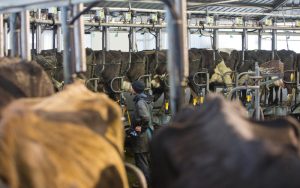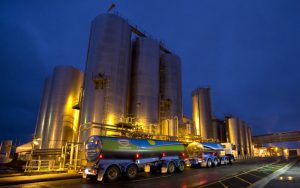
In a submission to the Ministry for Primary Industries (MPI), the co-operative says it will add significant additional annual cost for no clear benefit.
“Instead, we propose that consideration of additional measures as significant as this should be deferred to the next Dairy Industry Restructuring Act (DIRA) review.”
MPI is proposing changes to the milk price panel as part of its intention to amend DIRA to accommodate the co-operative’s revised capital structure, approved by farmer shareholders last year.
MPI is proposing to increase the number of ministerial nominees to the milk price panel from one to two. It also proposes an independent chair.
However, Fonterra chairman Peter McBride told Dairy News that the co-operative believes the independence of the panel is already assured.
“While we do not oppose increasing the number of ministerial nominees to two, we believe that the independence of the panel is already assured through its current composition,” he says.
McBride says the co-op has concerns about the proposal to prescribe a maximum of seven panel members in the context of the proposal to make the chair an additional independent member.
“We propose that any of the five independent members of the panel should be eligible to be appointed as the chair.”
The submissions will go through a parliamentary select committee before Parliament will vote on the DIRA amendments. The Government has indicated that it intends to pass the amendments.
McBride says changes to the capital structure are critical to the future of the co-op.
The co-op’s strategy is focused on New Zealand milk.
He says Fonterra’s ability to meet strategic targets depends on the co-op maintaining access to a sustainable New Zealand milk supply in an environment where they are seeing total milk supply in New Zealand as likely to decline, and flat at best, due to environmental pressures, new regulations and alternative land uses.
“Flexible shareholding will help our co-op maintain a sustainable milk supply.
“It is intended to make it easier for new and young farmers to join our co-op, and for existing farmers to remain in our co-op.”
McBride says farmers leave the co-op for different reasons, but one of the most influential ones is the high level of compulsory investment that’s required to be part of the co-op, in part driven my the different costs of capital between farmers and investors in a public market.
He says a flexible shareholding structure will make it easier for farmers to join and stay with the co-op by helping to “level the playing field with other domestic processors, many of whom see milk as a cost to be minimised, rather than aiming to maximise the long-term sustainable value created by and for New Zealand farmers and therefore to the New Zealand economy as a whole.”
























